Assad takes oath for new term, vows to fight 'economic war'
President Bashar al-Assad has taken the oath of office for a fourth term in war-ravaged Syria, after taking 95 percent of the vote.
Assad was sworn in on the constitution and the Qur'an in the presence of more than 600 guests, including ministers, businessmen, academics and journalists at the presidential premises in Damascus on Saturday.
The president addressed the audience, hailing the Syrian nation for standing for their rights and defending the country against foreign conspiracies.
"Through your awareness and national zeal, you have proven that the people's determination in defending their rights won’t weaken no matter what the colonists have cooked up for Syria," he said, referring to the US and its allies.
"They have sought to stir the chaos that burns our homeland, but through your national unity, you have shot the coup de grace at the projects that targeted the homeland," he added.
President Assad touched on foreign efforts to devise a new constitution for Syria, saying those efforts "continue until today" and are pushed by some agents who try to put Syria at the mercy of foreign powers.
"However, these attempts have failed by virtue of the Syrian people’s resilience," he added.
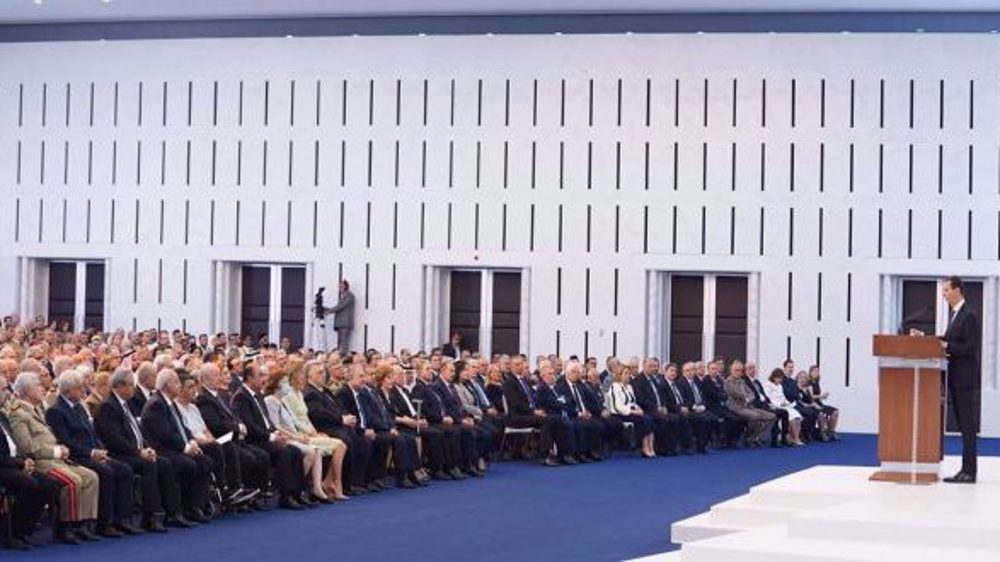
President Assad stressed that stability of Syria is the top priority and anything that affects it and the country's safety is absolutely rejected.
He also renewed his amnesty for those who have turned against the government by helping a foreign-backed sedition in Syria.
“I repeat my call on all those who have been deceived and bet on the collapse of the homeland and on the fall of the state to return to lap of the homeland because the bets have fallen and the homeland has remained."
Assad also reiterated “our trust in our army that it will achieve liberation even if it takes a while… and our belief in ourselves, our history and our civilization".
"This trust has achieved the impossible, and this is what we need today to confront the economic war," he said.
Amid the ferocious war, Syria has been slapped with a series of sanctions by the US and the Europeans, which have further harmed the Syrian people.
Assad touched on the country's pressing challenges, citing electricity shortages. He said the country's priority is to invest in diversifying its energy resources.
Syria's national power grid has been decimated by years of foreign-backed war on the country, leaving millions grappling with serious shortages.
President Assad said the Syrian people who have been through a fierce war and regained most of their lands are certainly able to build their economy under the most difficult circumstances, with the same will and determination.
The country is struggling to return to normalcy after liberating most of its territories from the clutches of the most ruthless militant groups in living memory.
However, some swaths of land occupied by US, Turkish and other foreign forces remain in the hands of militants.
US troops are based in a part of Syria which constitutes the breadbasket for about 60 percent of the Arab country's grains. The territories are also home to some of the country's hydrocarbon wealth which is reportedly being looted by the Americans.
Many other countries, however, have already started normalizing relations with the Syrian government.
The Financial Times said this month that some European countries are warming their ties with Syria after President Assad won the May 2021 presidential election.
Cyprus, it said, is moving into a new embassy in Damascus, and Serbia is set to send an ambassador to Syria.
The British newspaper said while such “small steps” are unlikely to be followed by EU’s juggernauts France and Germany any time soon, they “make clear the challenge the bloc will face as the situation in Syria normalizes over time”.
Laure Foucher, a senior analyst at Crisis Group who focuses on Europe and the Middle East and North Africa region said such moves by fringe states are “weakening the EU position”.
Some Arab states have also been seeking reconciliation with Damascus since the government forces gained the upper hand against the foreign-backed terrorists.
In 2018, Bahrain and the United Arab Emirates reopened embassies, which had been closed soon after anti-government militancy began in Syria in 2011.
Oman reinstated its ambassador to Syria last October, becoming the first Persian Gulf Arab state to do so.
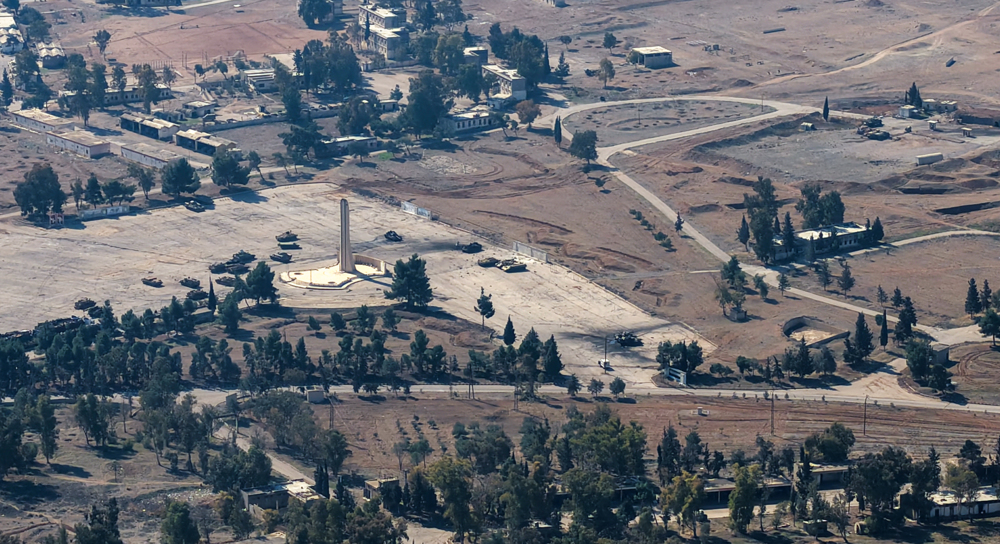
Arab states condemn Israel's new aggression against Syria
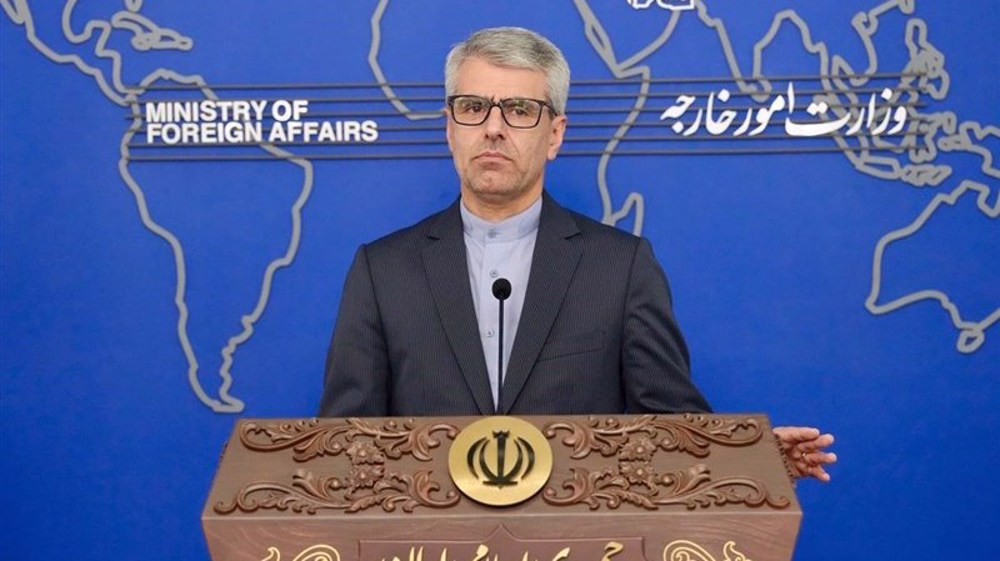
Iran urges swift action to end Israel’s strikes on Syria
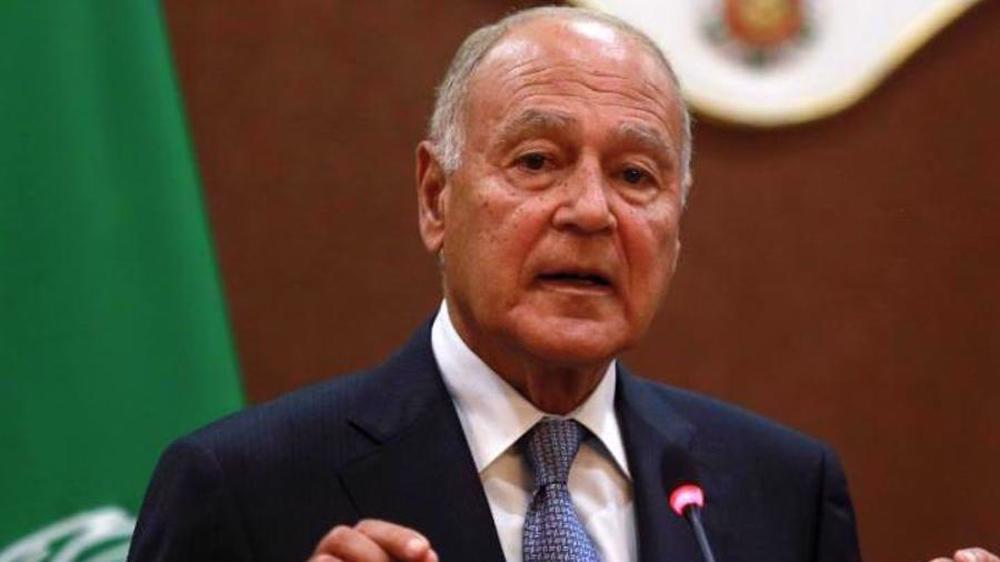
‘Provocative escalation’: Arab League censures Israeli strikes in Syria
Houthi: Yemen ready to attack Israel if Gaza ceasefire breaks down
VIDEO | Lost classrooms, lost childhoods: Jenin’s children struggle for education
VIDEO | Palestinians ramain steadfast despite Israel’s onslaught
VIDEO | Press TV's news headlines
Iran ready to strengthen ties with UAE based on ‘mutual interests’: Deputy FM
VIDEO | A slap in the face of imperialism
Iran remains steadfast in its ‘principled positions,’ says Foreign Ministry
VIDEO | Holding on to hope: Gazans welcome Ramadan despite hardship


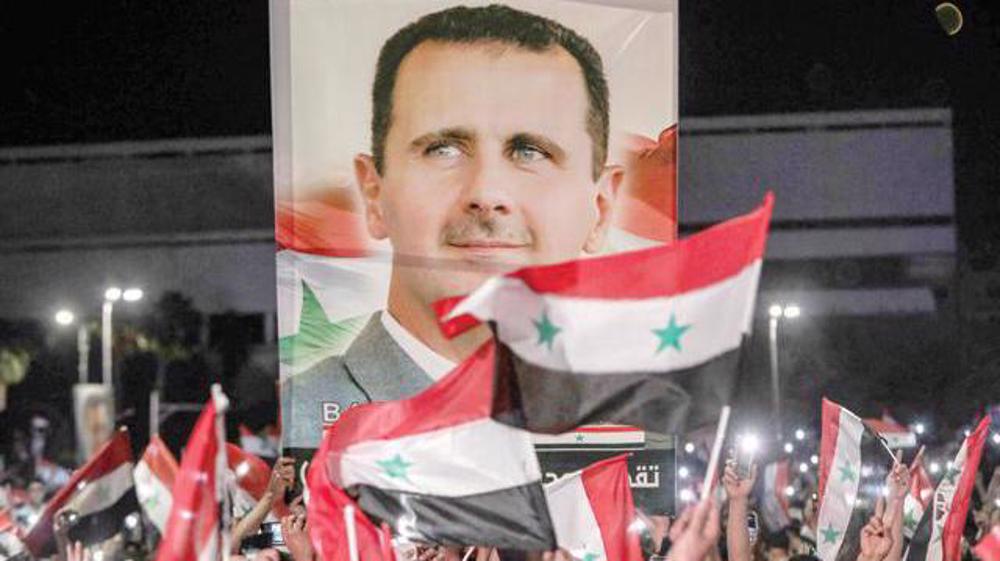




 This makes it easy to access the Press TV website
This makes it easy to access the Press TV website